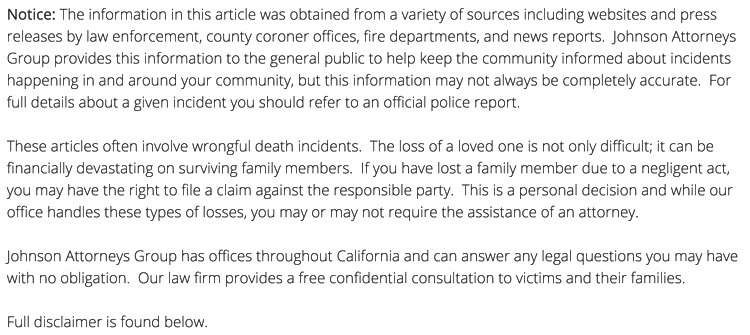Seven deaths have been blamed on the failure of EpiPens to correctly administer life-saving medicine to patients, FDA records show.
The product, which contains the hormone epinephrine (also known as adrenaline), helps save lives by preventing catastrophic allergic reactions. Roughly 4 million prescriptions for the EpiPen are written annually.
Its life-saving medicine can quickly be injected into people at a moment's notice. The EpiPen can be easily carried by people at risk for life-threatening allergic reactions.
However, some have reported the needle does not work correctly at times, leaving people who depend on them wondering if the medicine has been administered.
"Parents are especially frantic wondering whether their children received this medicine or not," said James Johnson, a personal injury and wrongful death lawyer. "This is a life-saving device and patients depend on it to work correctly."
Reports to the U.S. Food and Drug Administration state that seven deaths so far this year through September. The FDA investigated the deaths and found the EpiPens in some cases failed to deploy medicine, leaked epinephrine or didn't work properly. Thirty-five others have been hospitalized after the EpiPen allegedly failed to deliver its medicine to patients.
In fact, the FDA has received 228 reports about failed injections using the EpiPen and EpiPen Jr., according to documents obtained through a Freedom of Information Act request. The problems go back as far as 2012 when there were just four reports about failures, but by 2014 there were 67 failed incidents, according to Bloomberg reports. By 2016, the FDA received 105 complaints of EpiPen malfunctions and complaints have doubled since then.
The FDA, however, explains that complaints about the EpiPen do not necessarily confirm the medical product is the cause of an injury or death. While epinephrine has leaked out of some EpiPens, and some injectors were not functioning correctly, it must be stressed that those administering the device are not typically medically trained. The epinephrine itself may cause complications. Additionally, these EpiPens will not save lives in 100 percent of cases even when it does not malfunction.
EpiPen is sold by Mylan NV, a drugmaker legally based in the Netherlands. However, the company operates out of Pennsylvania.
 In March, Pfizer Inc.'s Meridan Medical Technologies, which makes the device for Mylan, issued a recall due to failures of the EpiPen and EpiPen Jr. pens.
In March, Pfizer Inc.'s Meridan Medical Technologies, which makes the device for Mylan, issued a recall due to failures of the EpiPen and EpiPen Jr. pens.
This is not the first controversy surrounding the medical device. Indeed, last year the company raised its prices from roughly $50 for a single unit to over $600 for a 2-pack. As a result, Congressional hearings were held to investigate the price hike and a Paris-based rival Sanofi sued EpiPen over its anti-competitive advantage with the product -- a claim denied by Mylan NV.
Mylan NV, which controls roughly 70 percent of the market for emergency alergy treatments, stated that despite testing and analysis it has not identified any specific defects in the EpiPen. Other companies that make similar devices are Impax Laboratories Inc. with its Adrenaclick, (18 percent of the market), and Auvi-Q (12 percent).
 Both children and adults with severe allergies come to depending on life-saving devices such as the EpiPen and EpiPen Jr. It wasn't until the FDA questioned why Mylan NV hadn't addressed hundreds of complaints it received from consumers, that the company began to conduct its own research into what may be causing the defects. Patients who use these devices deserve better and should be protected.
Both children and adults with severe allergies come to depending on life-saving devices such as the EpiPen and EpiPen Jr. It wasn't until the FDA questioned why Mylan NV hadn't addressed hundreds of complaints it received from consumers, that the company began to conduct its own research into what may be causing the defects. Patients who use these devices deserve better and should be protected.Johnson Attorneys Group has a proven track record when in comes to filing a wrongful death or personal injury lawsuits on behalf of patients who have been hurt by a defective product such as the EpiPen.
If you or a loved one were injured due to a defective EpiPen or EpiPen Jr., contact our California law firm to request a free case evaluation at 800-235-6801.
- Whitewater Crash Railroad Avenue, Haugen Lehmann Way - May 17, 2024
- Sai Ram Gollapalli Fatal Bicycle Accident Mission Boulevard in Hayward - May 17, 2024
- Mountain View Motorcycle Crash Highway 101, Moffett Boulevard - May 17, 2024



